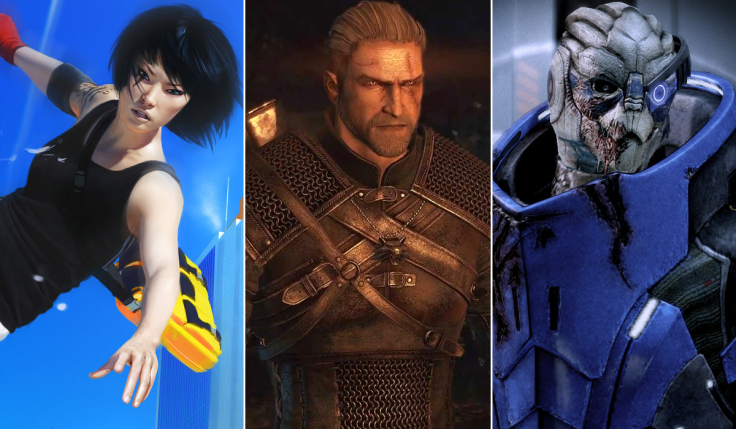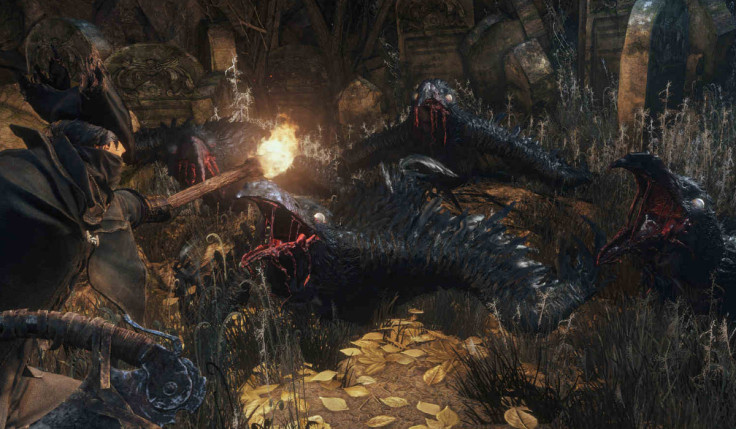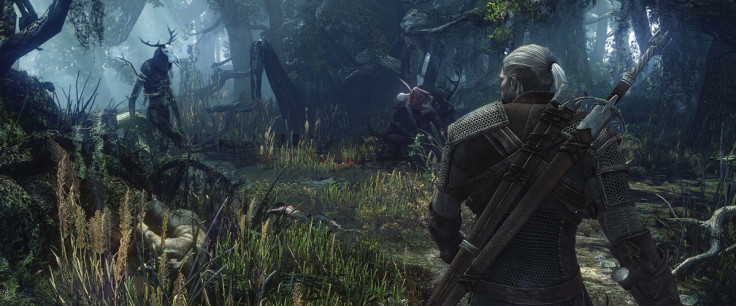E3 2015: Bring on the sequels - they are often better than new IP

Sequel is a dirty word these days. In the lead up to an E3 littered with them, the backlash to the lack of confirmed new IP has already begun. Companies are coming up with names to try distance themselves from the term, swapping a number in the title for things like Rise of The Tomb Raider and other ridiculousness. DICE recently joined in and delivered the following statement about their 'not-a-sequel' sequel to 2008's Mirror's Edge:
"Mirror's Edge has always had a special place in the hearts of all of us at DICE. The first game had a lot of promise. It was unlike anything else in terms of the gameplay and style — it had a unique soul. But as much as we loved that game, we knew it could be more. So that's what we have set out to do as we introduce Mirror's Edge to a new generation.
"The team has spent a lot of time re-evaluating every aspect of the game and making it a new experience. This is not a sequel, this is not Mirror's Edge 2. We have landed on a vision that honors the first game — pushing the boundaries of first person movement and diving deeper into the story behind our heroine Faith — but also brings a lot of great new, interesting gameplay and features to the experience for our players."
It's weird, because that last bit makes it sound a lot like Mirror's Edge 2. I can see the logic - it is difficult to stand out in a show full of games appended by ever-increasing numbers. Yet sequels often outshine the games that spawn them, refining mechanics, building on their foundations and sometimes completely reinventing themselves. The average E3 viewer will be aware of both this and the number of disappointing new triple-A IP over the last year or so.
Of course there is the odd exception: Bloodborne is one of the best games this year, but it's new in only name, taking elements of the Demon's Souls and Dark Souls games, tweaking and transferring them to a Lovecraftian setting.
Then there's the surprise that was Dying Light - an actually good zombie game from the developers that brought us the not-so-good Dead Island. Techland took Dead Island's rotting corpse, filled it with embalming fluid, reanimated it and sent it sprinting across the rooftops, parkour style.
Both Bloodborne and Dying Light games were new, both games were good, and both were evolutions of existing series.

Elsewhere, I personally enjoyed Alien: Isolation and Destiny, but both proved polarising, with scores ranging between perfect and middling. There is a likelihood Destiny will see more agreement on its quality once the sequels nail its core concept, and while there is an argument that those who disliked Alien: Isolation were a bit, well, wrong, it's still an outlier among a host of disappointments.
And there were a lot of disappointments. How about Watch Dogs, a mediocre open-world game in a post Grand Theft Auto V world? Ubisoft's techno-thriller had some interesting ideas, but was mired by an awful protagonist in an awful hat who drove cars with awful handling down awfully grey streets. I have no idea what Chicago is like in real life, but Watch Dogs makes it look like Milton Keynes on a hangover. With a new setting, a more likeable protagonist and combat that isn't broken by the introduction of a silenced weapon, there is a chance Ubisoft could do for hackers in 'iconic' hats what Assassin's Creed 2 did for murderers in peaked hoods.
"Some sequels not only build upon ideas of the original games, they completely change the template."
If you prefer your disappointment in five hour bursts, The Order: 1886 delivered a woefully short and barely interactive shooter that loves its story more than its players. The whole thing felt like a movie set, with most scenery not even reacting to gunfire — not good in a game sold on its visuals.
It's a shame because the setting was interesting, the guns were inventive and the moustaches were phenomenal. Like The Order: 1886's sterile environments, we too often see games fire and miss, hitting the wall and not leaving a mark.
In fact, plenty of recent new IP could be improved by a sequel: Evolve, Titanfall, Sunset Overdrive, Lord of The Rings: Shadow of Mordor and The Crew, to name a few. It is easy to assume that sequels will just be more of the same - and sometimes they are - but that's not always the case. Some sequels not only build upon ideas of the original games, they completely change the template.
Take the Mass Effect series. The first game had its merits, but the gunplay was clunkier than playing Kinect in a cupboard. Mass Effect 2 revamped the shooting, updated the visuals and trimmed some of the original game's fat, in the process creating the best game in the interstellar series. Mass Effect 4 is being developed in Frostbite 3, so expect it to make another giant leap.

One of 2015's finest games so far is The Witcher 3: Wild Hunt. From humble beginnings, The Witcher is a series that has steadily climbed in quality with each entry, culminating in the open-world beast that is Wild Hunt. The character of Geralt has always deserved a game like The Witcher 3 - a ronin monster hunter for hire needs a world in which to hunt monsters in, after all. The previous games saw him restricted by the story, funnelled from one location to another, with CD Projekt Red finally realising its vision on the third entry in the series.
So while it is easy to scoff at the amount of sequels at E3, take a moment to consider the quality of the games preceding them. Judging by the announced line-up, this is going to be a good year for sequels. We're about to get follow ups to Deus Ex, Zelda, Fallout, Metal Gear Solid, Doom and Mass Effect. There are also rumours of a new Dishonored and a sequel to Vanquish. Say that list out loud and try not to get excited.
It might seem like E3 is dominated by sequels, but at least you have an idea of what to expect. And in an age where trailers and gameplay reveals aren't necessarily indicative of what the game will be like, it is nice to have a little reassurance.
For all the latest video game news follow us on Twitter @IBTGamesUK.
© Copyright IBTimes 2024. All rights reserved.






